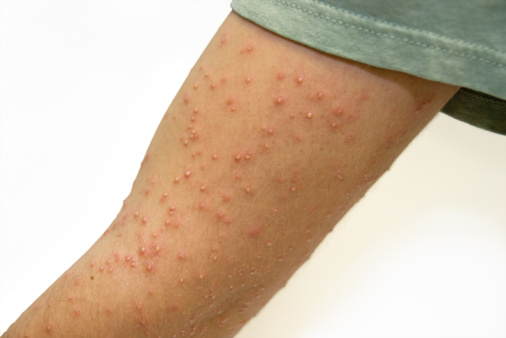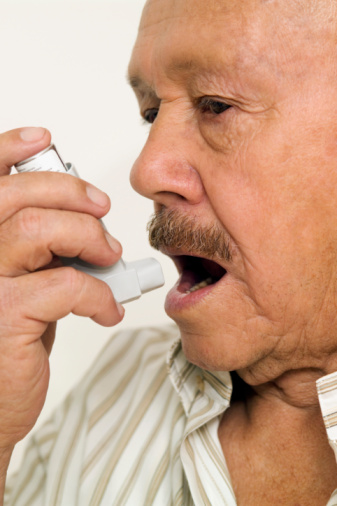THERAPY FOR ANGER, STRESS AND HEALTH
Anger is a very strong emotion. Your awareness of it and choices about expressing it can have a huge impact on your health.
If you were afraid to express anger as a child because you might lose love, be abused or cease to exist for your parents and care givers, then you probably kept your anger in.
Very soon that anger was so far below the radar that you didn’t even notice when you felt angry.
So, now as an adult you have learned not to notice anger. What you notice is anxiety.
But anxiety is often a good mask and a more acceptable emotion than anger.
So the anger remains suppressed.
Unacknowledged anger causes stress – the adrenaline that goes unused when you are suppressing anger, sets off the release of stress hormones like cortisol and cytokines.
Childhood trauma such as physical and sexual abuse cause later health problems by leaving tumour necrosis factor-α (TNF-α) and interleukin-6 (IL-6), biological markers in the blood that cause inflammation when under stress. Childhood emotional abuse leaves heightened levels of c-reactive protein (CRP), related to parental absence during early child development.
Stress leads to all sorts of serious health conditions including insomnia, weight gain, chronic pain, depressed libido, gastric complaints, autoimmune diseases, respiratory problems, hair loss, and skin breakouts. Read more about them below.
SLEEP AND FATIGUE PROBLEMS
- Insomnia – stress keeps you alert and watchful, vigilant against any threats that might come from work, relationships or your own mistakes. So your normal sleep cycle is disrupted and you feel increasingly exhausted. International Journal of Stress Management, 2010.
Learn more in this article: Stress leads to disrupted sleep
- Chronic Fatigue Syndrome – Stressful childhoods are a major cause of CFS. Journal of Aggression, Maltreatment & Trauma, August 2011.
A feeling of always having to be “on” to protect yourself takes its toll in adult onset chronic fatigue syndrome.
When you keep going and never speak about your overload, overwhelm and need for care, your body says “enough!” and you become permanently fatigued. Your immune system is compromised and you are more prone to exhaustion.
Learn more in this article: Stress and chronic fatigue syndrome
HOW I CAN HELP YOU
1. I can help you get more in tune with your emotions as they occur so that they won't show up as insomnia and fatigue.
2. I can help you feel safe with your emotions so that your body doesn't have to take the hit for you.
3. I can help you face your anxieties about not being cared for and show you ways in which you can get care without shame or guilt.
CHRONIC PAIN CONDITIONS
About a quarter of Americans suffer from chronic pain, making it the most common form of enduring illness for those under the age of 60.
A wealth of research indicates that anger enhances the perception of pain. Stress tenses muscles, adding to pain. Stress hormones also interfere with normal pain sensitivity, reducing the body’s natural pain fighting mechanisms. In 2015 the Canadian Association of Neuroscience found a biological link between anxiety and chronic pain.
Opiods don't work for those who have anxiety and depression in addition to chronic lower back pain, reports an article in Anesthesiology, July 2015. There was 50% less improvement in pain relief, increased side effects and risk for opiod abuse for those treated with opiods who also had anxiety and depression than for those without.
A report in the Journal of Neuroscience, 2015, indicates that chronic pain, doesn't respond to opiods, because brain inflammation causes the growth of immune cells that restrict the release of dopamine that would otherwise make you feel better. Therefore the opiods are rendered useless.
So chronic pain may be better treated with psychotherapy where you can learn to activate your dopamine receptors and begin to feel better.
- Fibromyalgia – is an experience of chronic pain together and fatigue in the whole body. Stress exacerbates the pain and makes it last longer.
Read more in this article on fibromyalgia
- Chronic lower back pain – is one of the commonest symptoms that is associated with stress at work and at home. There is strong evidence that it is associated with holding onto anger and a lack of willingness to forgive.
Read more in this article chronic lower back pain
Read more in this article Back pain is also associated with mistrust in relationships
- Migraine and headaches – tension headaches and migraine are often triggered by intense anger that isn’t expressed and relieved. The stress of holding it in produces tension and pain that can be throbbing, last for a long time, and be non-responsive to medications alone. At the 2014 Annual Meeting of The American Association of Neurologists, a study was reported wherby data for headaches and stress intensity and frequency were collected over a two year period for a group of headache sufferers. For each type of headache, tension type or migraine, an increase in stress was associated with an increase in the number of headaches per month,
- Sciatica – is an excruciating pain down one leg where a nerve gets pinched when stress constricts muscles and heightens the pain perception in the brain. It is relenting and debilitating, but responds to stress reduction.
HOW I CAN HELP YOU
1. Unearth the core source of stress that gives you pain and debilitates you.
2. Become aware of the stress before it gets overwhelming and gives you pain
3. Enable you to develop self-empowering strategies to reduce the frequency of the pain and the perception of it's severity.
GASTRIC PROBLEMS
- IBS or irritable bowel syndrome is closely associated with stress. Muscle contractions in the bowel go into overdrive and cause cramping, pain and a change in the frequency of bowel movements. Symptoms are triggered by stress, and abate as stress is managed. A study reported in Gut, 2015, found that anxiety and depression can alter the immune response in the gut and make you more susecptibe to IBS after a gastrointestinal infection.
Read more here irritable bowel syndrome
- Ulcerative colitis (UC) – is another chronic gastric condition where stress compromises the immune system, making it over react to normal gut flora. The disease causes ulcers that bleed, weight loss and a poor absorption of nutrients from food, leading to loss of energy.
- Acid Reflux (AR) – the burning sensation of having acid coming up your throat is uncomfortable and can cause the erosion of the lining in the esophagus. Unprocessed anger and stress change the PH balance in your gut resulting in acid reflux.
Read one person’s story of having acid reflux,
HOW I CAN HELP YOU
1. Become aware of the cumulative stressful experiences you have had that have led to gastric problems. Your tendency is to brush it aside as 'nothing' because there are no immedite consequences.But when you suffer with bleeding, cramps and acid reflux you have to notice it.
2. Train yourself to monitor what you take on and how you care for yourself during tough times, when you have to deal with unexpected events. Self-monitoring is the first act of stress managment and essential if you want to reduce your chances of UC, IB and AR.
WEIGHT GAIN
- Binge Eating, Comfort Eating, Metabolic Syndrome and Obesity – numbing your anger with food turns you into a binge eater. The swing from numbing yourself to feeling guilty about bingeing causes stress. In addition when you are experiencing a lot of negative emotions, you tend to have an impulse or sense of urgency to get rid of it by binge eating, says a study reported in International Journal of Eating Disorders, 2015.
- Stress increases your appetite adding to caloric intake. Neuron, Volume 71, Issue 3, 529-541, 11 August 2011.
- High stress levels induce comfort eating, changing the glucose metabolism and adding to weight gain. Psychoneuroendocrinology, November 2011
- Stress interferes with your metabolic rate, causing you to eat more, and keep the calories from burning. Psychoneuroendocrinology, 2014.
- Stress also makes you crave sweet things, adding to the metabolic load. Neuroscience Letters, 2014. Like the person in this story you then put on weight.
- Adolescents who are stressed by difficult family life are prone to adult obesity. Journal of Adolescent Health. Feb 2010.
- Family stress that is chronic makes adolescents girls fat, while the stress of having a mother with poor health makes boys fat. Preventive Medicine 2015
HOW I CAN HELP YOU
1. Learn to become aware of your emotional sense of feeling 'empty' or 'full'.
2. Guide you to get your emotional needs met in healthy ways rather than using food.
3. Trust that people can and will be consistently caring so that food doesn't have to be the only substitute you can rely on.
AUTOIMMUNE DISORDERS
SKIN PROBLEMS
- Excema and Dermatitis – anger and stress interfere with the immune system resulting in rashes, itchy and flaky skin both on the body and the scalp. J Eur Acad Dermatol Venereol. 2007.
Stressful life events is associated with an heightened attack of psoriasis vulgaris and chronic urticaria. Indian J Dermatol Venereol Leprol. 2008
Discover more about mind-body skin issues, as well as expertise quoted in US News & World Report: How to Heal Your Skin With Your Mind
Read the research and stories of those who suffered skin breakouts and hair loss,
Respiritory problems
- Rhinitis is a condition where you have colds and associated sinus problems on a constant basis. Exhaustion from chronic stress makes you prone to this condition. Read more about the research and cases here rhinitis.
- Asthma – childhood and adult onset asthma have been associated with stress, especially family related stress. Journal of Epidemiology & Community Health, 2014; Annals of Allergy, Asthma & Immunology, 2014.
- Lupus – anger and stress over activates the immune system’s response to body cells and tissues, exacerbating the symptoms of this disease. Psychosomatic Medicine, 2007.
- Tinnitus – a constant ringing in your ears is very disconcerting and affects your concentration and ability to converse in social situations. Psychoneuroendocrinology. 2009. Read one person’s story here tinnitus .
- RHEUMATOID ARTHRITIS – this painful and disfiguring complaint is often caused by suppressed anger and stress. Learn more here Rheumatoid Arthritis
Healing and Recovery Problems
17. When you are full of anger and other negative emotions, your stress level rises. Production of proinflammatory cytokines that influence arthritis, peridontal disease, type 2- diabetes, cancer and other conditions can be directly stimulated by negative emotions and stressful experiences. Additionally, negative emotions also contribute to prolonged infection and delayed wound healing, processes that fuel sustained proinflammatory cytokine production. Annual Review of Psychology, 2002
HOW I CAN HELP YOU
1. Acknowledge anger, fear, envy, and hate – so that you can tolerate it as normal. Then I will help you understand and accept that these feelings are not as dangerous as you imagine. Next I will give you space and time to express them in a safe way.
2. Release all the negative feelings of guilt and shame that you asssociate with feeling angry with your family and other loved ones. Once you release those strong emotions, your immune system won't perceive a threat and act against you – giving you autoimmune diseases.
Hair Loss
18. Stress that comes from buried anger attacks the scalp like it does your skin. Hair loss is common when you are under stress. A hormonal imbalance accelerates the aging process and makes hair fall out. International Journal of Dermatology, 2004.
Helpful article: Stress and Difficulty Accepting Help Makes Your Hair Fall Out
SO MAKE THAT CALL AND LET ME HELP YOU CONQUER YOUR ANGER ISSUES, REDUCE STRESS AND HAVE A HEALTHIER AND MORE SATISFYING LIFE.
Psychotherapy can free you from the burden of anger and stress, making you healthy in body and mind, so that you are available to have the life you deserve.
I offer coaching and therapy services. Call to get more details.
CALL 310- 985-2491
| Follow @drjeanette | |||















